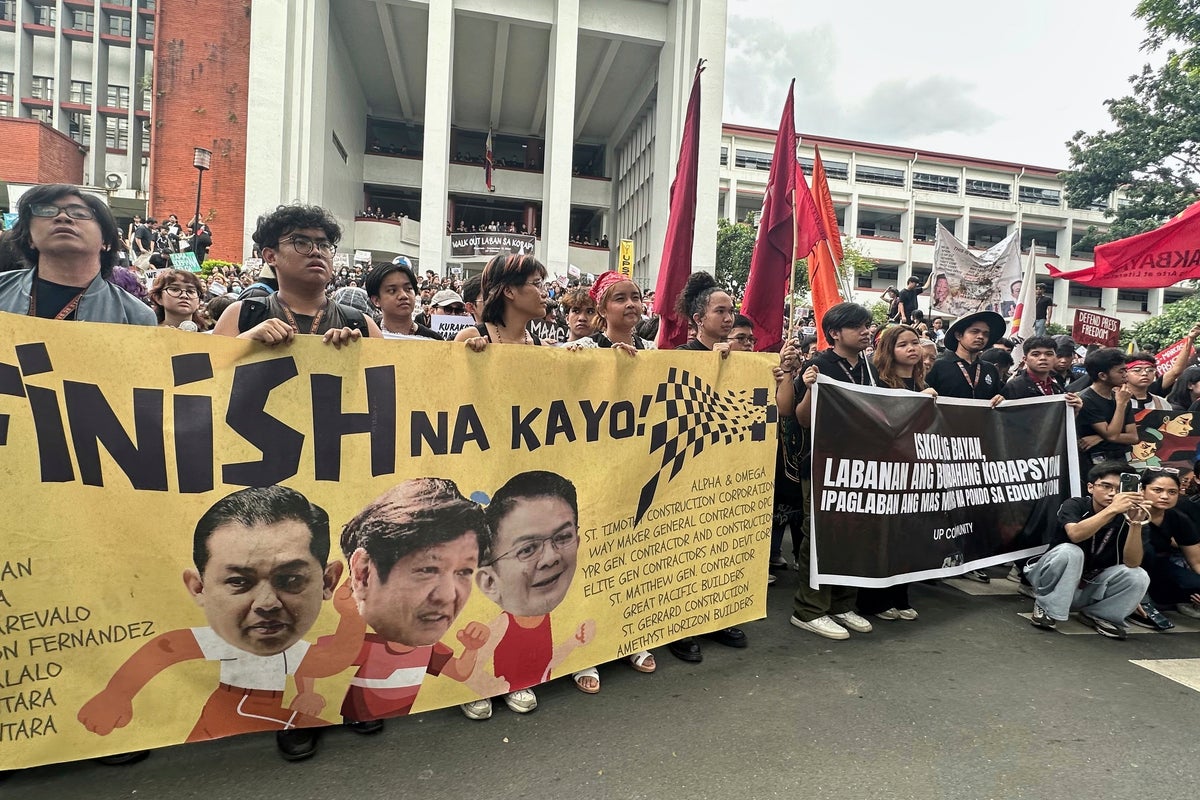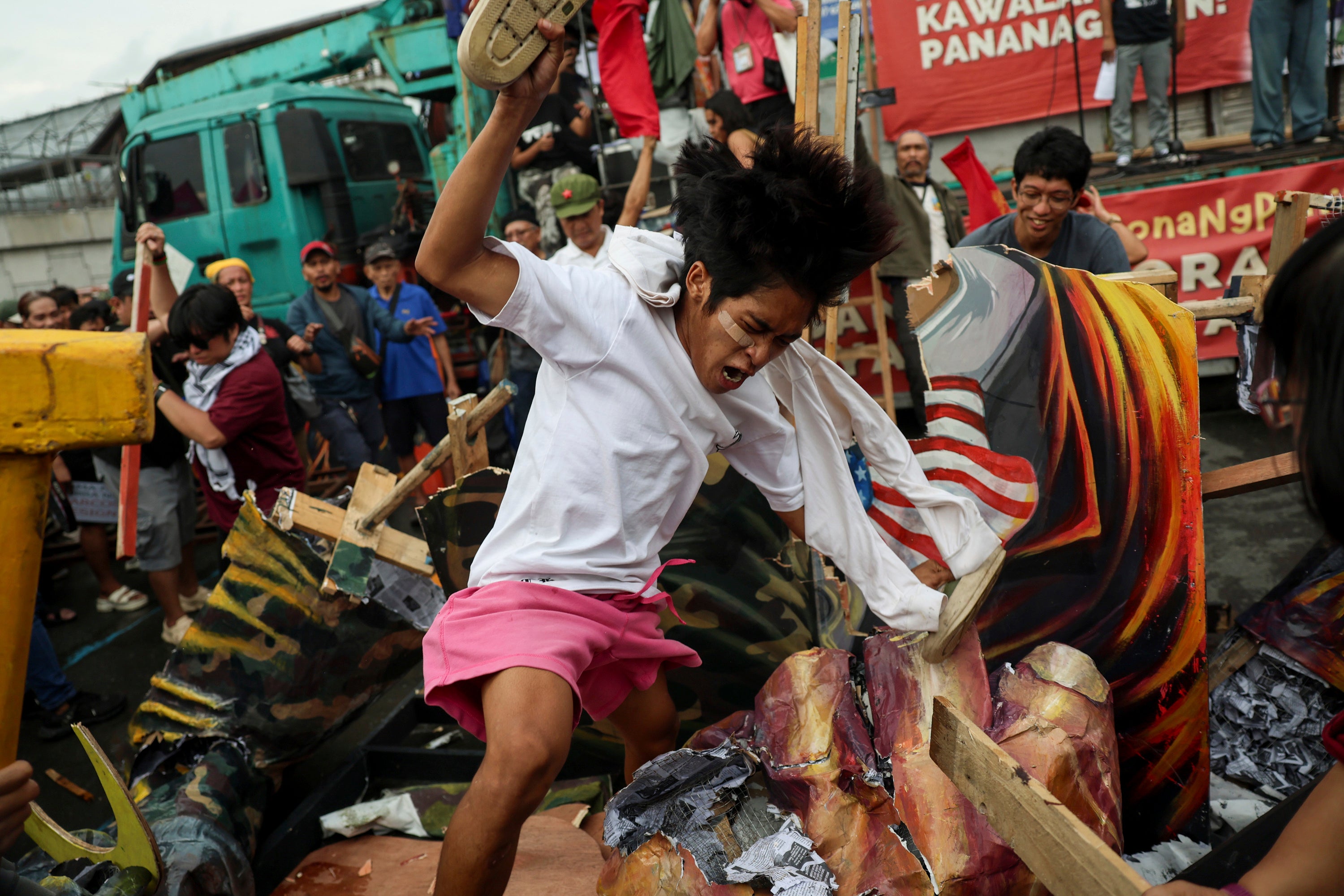
Thousands of people took to the streets in the Philippines on Sunday to denounce what they claimed was one of the country’s biggest corruption scandals in decades, involving billions of pesos in public funds meant for flood-control projects.
Protesters gathered at Manila’s Rizal Park and along the capital’s main highway, waving flags and holding banners reading “No more, too much, jail them” as they demanded accountability from the lawmakers and contractors accused of pocketing kickbacks.
Police said nearly 8,000 officers were deployed across the city to prevent violence. The embassies of Australia and the US had warned their citizens to avoid the rallies.
The protest was sparked by revelations that thousands of flood-control projects worth over 545 billion pesos (£7.1bn), were allegedly substandard or never built. The projects were meant to protect poor, storm-prone communities across the country.
President Ferdinand Marcos Jr acknowledged the scandal in his annual address in July, later calling its scale “horrible” and setting up an independent commission headed by a former Supreme Court justice to conduct an investigation.
Public outrage intensified this month after a wealthy couple named Sarah and Pacifico Discaya, who run several construction firms, claimed in televised testimony they were forced to hand over huge kickbacks – allegedly 25 per cent of the contract values – to secure work.
They named 17 members of the House of Representatives and several public works officials. The couple’s display of dozens of imported luxury cars, including a British vehicle reportedly worth 42 million pesos (£547000), further fuelled the backlash.
A former government engineer had already implicated two senators in the alleged scandal.
All the accused officials have denied wrongdoing.
The revelations have shaken both chambers of Congress, with Senate president Francis Escudero and House speaker Martin Romualdez resigning amid growing pressure.
Several public works engineers have been dismissed and their assets frozen amid investigations by prosecutors and auditors.

Cardinal Pablo Virgilio David, head of the Catholic Bishops Conference, urged demonstrators to protest peacefully. “Our purpose is not to destabilise, but to strengthen our democracy,” he said.
The protest, dubbed the “Trillion Peso March” by organisers, fell on the anniversary of the 1972 declaration of martial law by Marcos’s late father, a symbolic choice intended to underline calls for transparency and reform rather than a change of leadership. Organisers said they were targeting the system that enabled the corruption, not directly calling for the president to resign.
In response, Mr Marcos promised that “no one will be spared” from the investigation. His government, he said, had suspended bidding for new flood-control schemes until the review was complete.
The UN Human Rights Office cautioned that deliberate misuse of disaster-protection funds risked deepening poverty and inequality in one of Asia’s most climate-exposed nations.
The scandal has also rattled financial regulators: the central bank this week tightened rules on large cash withdrawals to prevent laundering of illicit funds.
For many Filipinos, the revelations have confirmed long-held frustrations about graft.
“I feel bad that we wallow in poverty while they rake in a fortune from our taxes,” student activist Althea Trinidad, who joined Sunday’s rally, told Associated Press.
“We lose our homes, our lives and our future while they drive luxury cars.”
Popular Indian singer dies in diving accident in Singapore
‘I was left unconscious after eating street food and petting cats on remote island’
Malaysian housewife wins $1.4m after using spam caller’s numbers in lottery bet
Ukrainian man given life sentence for running Bali drugs lab
Border tensions flare up again after Thai forces clash with Cambodian villagers
World’s oldest human mummies were smoke-dried 10,000 years ago, new research shows







